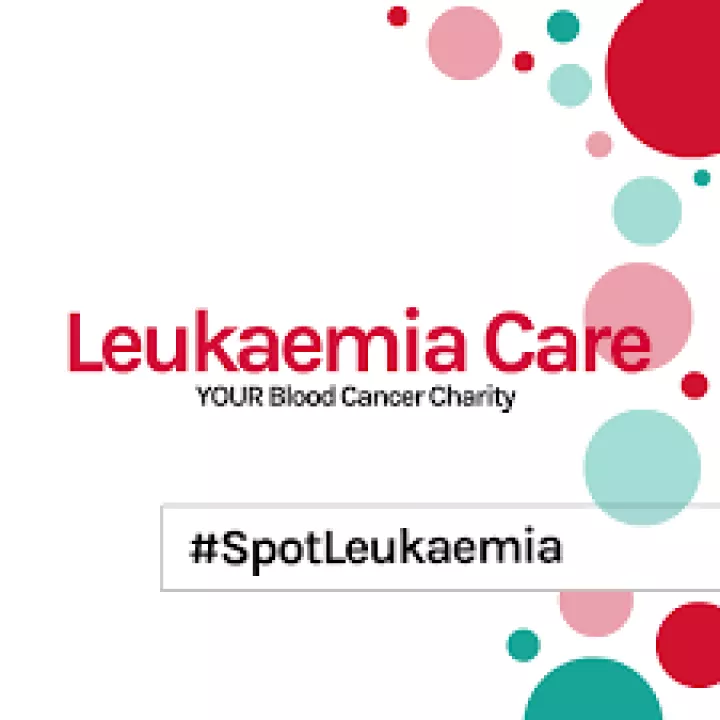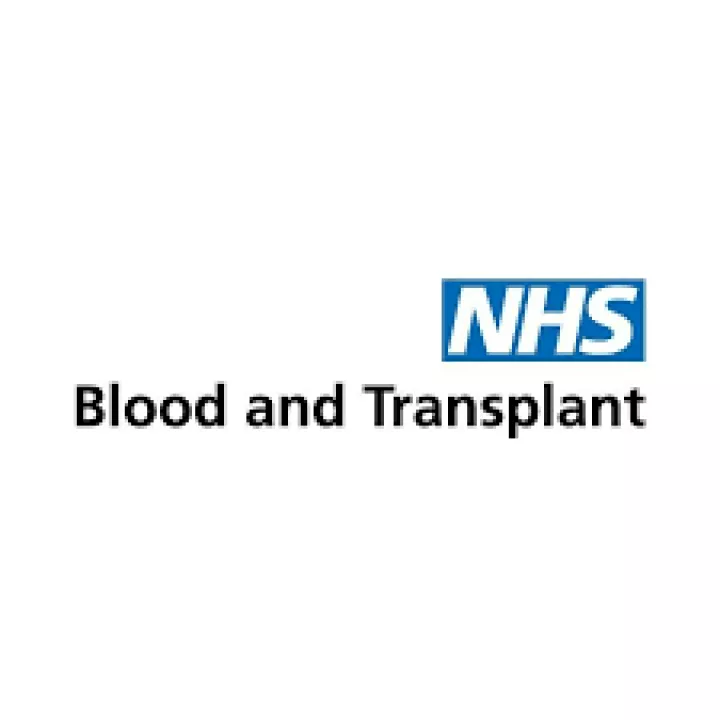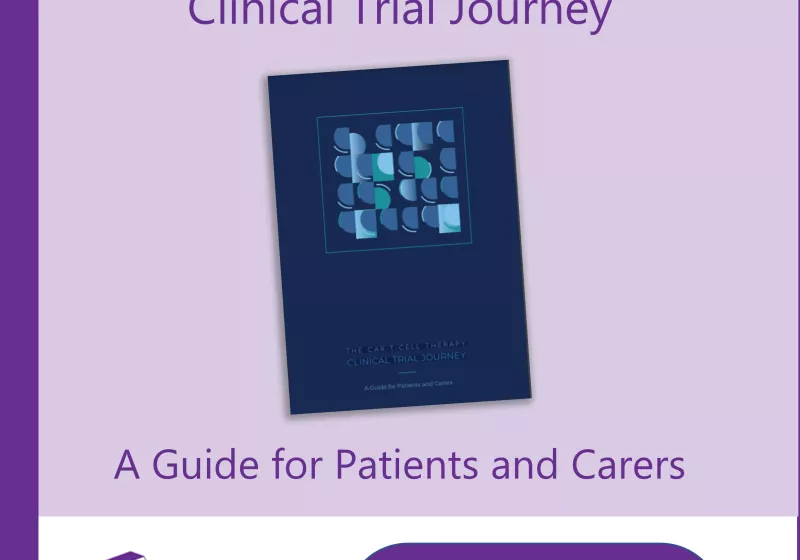CAR-T Therapy
Chimaeric antigen receptor T-cell therapy (CAR-T therapy) is a hybrid gene-cell therapy which 'reprograms' a patient's immune system to fight disease. How does it work, and what is it currently used to treat?
What do we know?
CAR-T (chimaeric antigen receptor T-cell) therapy, also called CAR-T cell therapy, is a personalised cancer treatment. A patient’s own immune cells (white blood cells) are collected from their body. In the lab, scientists isolate T-cells from the patient’s blood, immune cells responsible for recognising and destroying abnormal cells in the body. These T-cells are then ‘re-programmed’ in a lab to recognise cell markers, or antigens, present on the patient’s cancer cells. After this re-programming process, they are referred to as CAR-T cells.
These CAR-T cells are grown in large numbers in the lab, then introduced to the patient’s body by infusion. Before the infusion takes place, patients undergo treatment which reduces the number of their own T-cells, to increase the uptake of CAR-T cells by the body.
As it is a complex process, CAR-T therapy is considered only after more routine treatments have proven unsuccessful. CAR-T therapy currently has EMA approval for treatment of B-Cell Acute Lymphoblastic Leukaemia in children and young people, and for Diffuse Large B-Cell Lymphoma and Primary Mediastinal B-Cell Lymphoma and Multiple Myeloma in adults.
What are researchers currently investigating?
Researchers are currently investigating whether CAR-T might one day be used to treat different forms of cancer, including solid tumours. This requires knowing how to reprogram T-cells to recognise different types of cancer cells, or which recognise more than one antigen. Researchers are also investigating the potential of CAR-T to treat autoimmune conditions, and infectious diseases such as HIV.
Research is on-going into modifying how the CAR-T cells respond to their target antigen. This could help to mitigate the adverse effects of the treatment, and reduce the associated risk to patients.
Researchers are working to develop CAR-T therapy using donor cells (allogeneic cells), rather than the patient’s own cells (autologous cells). Patients with blood cancers may have low blood cell counts, and it may not be possible to collect enough white blood cells for CAR-T. If CAR-T can be conducted using donated cells, this will make the treatment suitable for a broader range of patients.
What are the challenges?
CAR-T is currently appropriate for only a narrow range of patients and circumstances
CAR-T is a highly personalised treatment. Patients diagnosed with a form of cancer that can be treated using CAR-T may be disappointed to learn that they are ineligible. A healthcare team must consider each patient’s unique set of circumstances. This includes the patient’s overall health at the time of the decision, and the array of treatments they have received in the past. The healthcare team must also consider how this treatment might affect a patient’s eligibility for future treatments which are still being considered.
Patients with blood cancer may have low blood cell counts. This can present a problem in collecting enough white blood cells to grow in the lab. It can also happen that the cells collected from these patients do not grow well in the lab. In these cases, a second cell collection procedure may be required of the patient, delaying the process.
Even in patients considered healthy enough to undergo CAR-T therapy, there is a risk that their cancer will progress and that a ‘bridging therapy’ will be needed in the meantime, which may in turn affect their suitability for treatment.
Developing CAR-T cell therapies for solid tissue
Cancerous blood cells can be targeted through an infusion of CAR-T cells, which will then circulate throughout the whole vascular system. Solid tumours require more targeted delivery methods to allow the cancerous tissue to be fully infiltrated by the CAR-T cells.
Adverse effects
CAR-T carries risks of serious adverse effects.
- Because it stimulates immune activity, it is possible for it to provoke an immune over-reaction known as a cytokine storm. This is a serious reaction which can lead to organ failure and death. It can be treated successfully if identified promptly.
- CAR-T also carries risks of neurological effects. A range of neurological effects have been reported, including tremor, delirium and seizures. Some of these effects pass with time, while others are longer-lasting. The long-term outcomes of these adverse effects are still being studied.
CAR-T for blood diseases
At present, CAR-T is only approved for the treatment of certain blood cancers. Researchers are currently investigating whether it might also be used to treat other blood-related conditions, such as auto-immune disorders and infectious diseases.
Blood-related diseases, particularly cancers, present a unique treatment challenge. Unlike solid tumours or tissue, the malignancy is diffuse and not confined to a specific site. As blood is a constantly self-renewing tissue, the production of malfunctioning cells can impede the overall functioning of the blood. Malfunctioning cells are often produced at an accelerated rate compared to normally-functioning cells. This means that not only is their function impaired, but they over-proliferate and ‘crowd out’ other cell types.
CAR-T is a useful tool in fighting blood diseases as it is not a localised treatment. Once the modified CAR-T cells have been infused into the patient, they disperse throughout the bloodstream, targeting cancerous cells.
Producing CAR-T cells
If the patient’s own cells are being used (autologous cell therapy), the patient will have a blood sample taken. The blood will be treated to separate the white blood cells from the other blood components. The white blood cells will be transported to the laboratory, and the remaining components will be re-infused into the patient’s body. If the patient is receiving cells from a donor (allogeneic cell therapy) the donor will undergo this process.
In the laboratory, scientists will isolate T-cells. (You may hear this process of isolating a sub-population of cells as refining or purifying the cells for this cell type.) These are the immune cells which target and destroy ‘non-self’ cells, or cells they identify as not being a part of the body. They identify cells as ‘self’ or ‘non-self’ through the presence or absence of specific proteins on the outside of the cell. These markers are described as antigens.
When the T-cells have been isolated, scientists alter their DNA. They do this by exposing them to a modified, harmless virus. The virus inserts a new gene into the cells, which will program the cells to produce a protein that consists of two components. The first component - an antigen receptor – is located on the outside of the cell and recognises the target antigen. The second component, located inside the cell, instructs the T-cell to destroy the cancer cell once the antigen is recognized. Because these two components are physically linked, these receptors are called chimaeric antigen receptors, and T-cells which have been modified this way are called chimaeric antigen receptor T-cells (CAR-T cells). The CAR-T cells are grown in the lab until there are millions of them.
When there are enough cells, they will be purified to ensure that they contain only the new CAR-T cells, rather than the original, unmodified T-cells. They will also be tested in the lab to ensure that they are functional and of a high quality. When this has been confirmed, the cells are transported back to the clinic.
Receiving CAR-T therapy
Before receiving the modified CAR-T cells, the patient will undergo targeted chemotherapy to reduce the number of their white blood cells. This is called lymphodepleting chemotherapy. This is done so that the CAR-T cells will not have to ‘compete’ with the patient’s own T-cells, and instead will occupy the gap created in the immune system. This process lasts for 3-5 days.
When the lymphodepleting chemotherapy is complete, the patient receives an infusion of their CAR-T cells. This procedure takes around 30 minutes. The CAR-T cells can now begin to target and destroy cancerous cells, like typical T-cells targeting and fighting an infection.
The patient will continue to be monitored to assess the effect the treatment is having on their cancer, and to watch for side-effects.
Successful treatment
CAR-T therapy has had promising success rates in trials, and the approved uses may offer hope to patients for whom other treatments have failed. There are blood cancer patients now in remission thanks to successful treatment. Two patients in the United Kingdom who had treatment in 2019 have shared their stories.

Sophie shared her story with Leukaemia Care

Nitya shared her story with NHS Blood and Transplant
Anyone considering CAR-T therapy should discuss their individual situation with their healthcare professional to understand why they may or may not be eligible, the expected chances of success, and the potential benefits and risks.
Treatment eligibility
At present, CAR-T is only approved for the treatment of specific blood cancers. Because CAR-T is a highly complex process entailing significant risks, it is only offered after a patient has not responded to at least two more routine treatments for their cancer.
CAR-T is a highly personalised treatment – not just at the genetic level, but at the level of the specific patients, their current health, and their treatment history. Patients who have a form of cancer which is approved for treatment by CAR-T therapy may be disappointed to learn that they are not eligible for treatment.
Some patients will be ineligible to receive CAR-T due to previous treatments. In the same vein, patients who have received CAR-T will be ineligible for other possible treatments. You should ask your clinician whether this will apply in your case. Choosing between possible therapies is a very personal choice, and your clinician and healthcare team should provide you with support and information through this process.
Because CAR-T requires immunodepletion and carries significant risks, the treating clinician must decide whether the patient is healthy enough to go through the process. A patient’s healthcare team may decide that the patient’s health is too poor to justify the risk.
Risks and adverse effects
CAR-T carries the risk of severe immune reactions relating to the immune system (immunological affects) and nervous system (neurological effects).
Immunological side-effects
As CAR-T therapy stimulates an immune response, it can provoke an excessive immune reaction called cytokine storm, such as cytokine release syndrome (CRS) or HLH/MAS (short for haemophagocytic lymphohistiocytosis/macrophage activation syndrome).
Cytokine storms are a group of disorders characterised by overproduction of certain immune cells and excessive inflammation. The immune system produces an excess of white blood cells. These white blood cells release signalling molecules called cytokines. These cytokines cause an inflammation response in the body – a natural response by the immune system to infection. This inflammation triggers the production of more white blood cells, which in turn produce more cytokines, creating a feedback loop. This can lead to systemic inflammation, hypotensive shock, and multi-organ failure.
While these reactions can be fatal, they can typically be treated successfully if the symptoms are recognised early.
Neurological side effects
The neurological side-effects of CAR-T therapy have been termed neurotoxicity, or ICANS (immune effector cell-associated neurotoxicity syndrome). The range of possible symptoms includes headaches, anxiety, sleep disorder, delirium, tremor, seizures, and speech or motor difficulties. Scientists are still studying the duration of these effects; some patients report that symptoms have diminished other time, while in other cases the effects require on-going management.
This is not an exhaustive list of potential side-effects. You may be at greater or lesser risk for certain side-effects based on your treatment history or co-existing conditions. Your clinician will be able to advise you of the risks this therapy presents in your specific circumstances.
Potential other uses
Researchers are currently working to develop CAR-T cells with a range of antigen receptors to target other kinds of blood cancer.
Researchers are also investigating whether it can be adapted to treat other disorders where activity is ‘diffuse’ rather than localised, such as infectious diseases and autoimmune conditions.
Scientists are also studying whether CAR-T can be used to treat solid tumours. As well as developing CAR-T cells to target cancer-specific antigens, researchers are trying to determine what method is most effective and safe for delivering the CAR-T cells to the tumour.
Other resources
Guide for Patients and Carers:
Other factsheets:
Patient stories:


